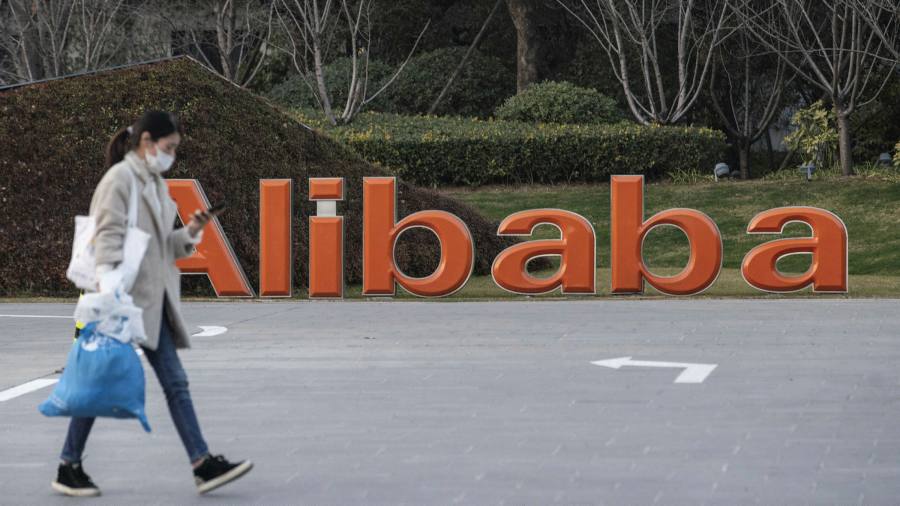[ad_1]
Alibaba suffered slowing growth in its core business in the final quarter of last year as Jack Ma’s internet shopping empire faced a tightening regulatory outlook.Â
Alibaba’s total revenue rose 37 per cent year on year to Rmb221.1bn ($34.2bn) in the quarter, ahead of analysts’ estimates, but was boosted by the inclusion of sales from Sun Art, the supermarket chain it bought in October.
Stripping out Sun Art’s contribution, revenues grew 27 per cent year on year in the quarter, the slowest pace since its IPO in 2014, excluding the first quarter of last year, which was heavily disrupted by coronavirus.
Alibaba’s income from operations, which excludes its gains from investments, rose 24 per cent from a year earlier to Rmb49bn.
China’s market regulator is investigating Alibaba’s alleged abuse of its dominant market position, particularly claims that it forces merchants to spurn other online platforms and sell exclusively on its Taobao and Tmall marketplaces.Â
Daniel Zhang, chief executive, admitted that Alibaba had exclusive relationships with “a very small number†of merchants but said that “even in those cases, they have many channels to sell their goodsâ€.
Mr Zhang said Alibaba would be “co-operative†and “receptive†to the antitrust investigation. He added that the company had established a special task force made up of business group leaders to “conduct internal reviewsâ€.
Analysts and lawyers say the most likely outcome for the antitrust investigation is a hefty but manageable fine for Alibaba, which processes about one-fifth of China’s retail sales.Â

After Mr Ma’s ill-timed speech criticising China’s state-owned banks and regulators in October, Beijing halted the $37bn IPO of Alibaba’s payments arm Ant Group. Alibaba’s results showed that Ant earned an estimated Rmb14.5bn in profit during the third quarter, before its listing was suspended. Ant had reported a net profit of Rmb21.9bn in the first half of 2020.Â
Alibaba said its sister company was “in the process of developing its rectification plan†and that its “business prospects and IPO plans are subject to substantial uncertaintiesâ€.Â
Mr Ma has been lying low in the wake of the regulatory onslaught, which has wiped 15 per cent off of Alibaba’s value. Its US-listed shares were down an additional 3 per cent in early trading after the results.
In a sign of Mr Ma’s continuing troubles, his name was conspicuously absent from a state media editorial on Tuesday lauding some of China’s most famous entrepreneurs such as Pony Ma of Tencent, Ren Zhengfei of Huawei, and Lei Jun of Xiaomi.
“They are the fighters and ambitious people who can push forward Chinese enterprises and even the whole country’s high-quality development,†the editorial said.Â
Analysts continue to be concerned about the increasing competition Alibaba faces: its rival Pinduoduo has rapidly amassed 731m annual shoppers to its 779m, creators on livestreaming platforms Kuaishou and Douyin are selling goods directly to their fans, and shoppers are increasingly buying groceries through online community groups.
“Having to spend more on investments is impacting their margins,†said Robin Zhu of Bernstein, noting that growth in cloud computing revenues, up 50 per cent on year, also missed expectations. “People looking for the bull case will probably still be waiting,†he said.Â
[ad_2]
Source link






